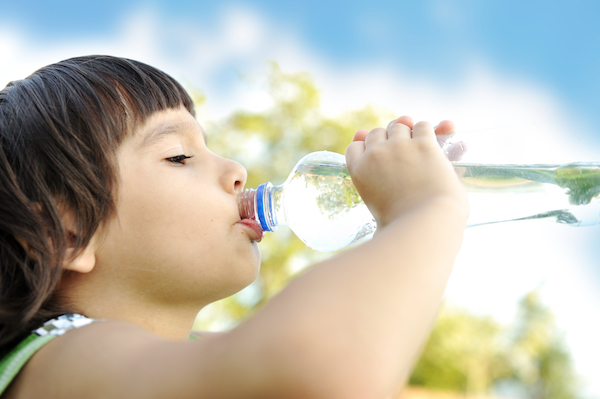Some people with private wells opt to use bottled water for cooking and drinking. In certain situations, when water quality is less than desired, bottled water may be a good option. However, it is important to make an informed decision starting with a good understanding of bottled water.
Bottled water is water that is sealed in food-grade bottles and intended for human consumption. It can come from a variety of sources, including groundwater from a well, water from a protected spring, or water from a public water supply tap.
The U.S. Food and Drug Administration (FDA) has set standards of quality for bottled water intended for human consumption, but not all bottled water is regulated in the same way.
Domestic bottled water sold in states other than that in which it was bottled (interstate commerce) is regulated as a food by the FDA. This water must meet FDA water identity and quality standards. To ensure that the standards are met, bottling companies must regularly test their products. The FDA also requires that bottled water products distributed through interstate commerce comply with its Good Manufacturing Practices. These practices cover the production and packaging and provide assurance that bottled water products are processed under sanitary conditions and are clean and safe for human consumption.
Allowable levels have been established for a number of potential contaminants, and bottled water cannot contain more than the allowable level for any regulated contaminant. If a producer of bottled water is in full compliance with regulations, the water should be suitable for drinking and cooking; however, not all potential contaminants are regulated and there is always some risk of contaminants going undetected between testing intervals.
Imported bottled water also is regulated as a food by the FDA and must meet all FDA water standards described above. To ensure those standards are met, bottled water imported from foreign countries is randomly tested at ports of entry.
FDA rules for bottled water exempt water that is packaged and sold within the same state. The quality of water packaged and sold in-state may be regulated by an agency in that state or may be unregulated. In states where it is regulated, the levels of contaminants allowed may be equal to, greater than, or less than that allowed by FDA. Water bottled and sold in Nebraska is regulated by the Nebraska Department of Agriculture and must meet FDA bottled water standards.
In addition, the bottled water industry regulates itself through the International Bottled Water Association (IBWA.) The IBWA sets manufacturing requirements, which help ensure that bottled waters meet FDA health standards. Bottled water producers that are members of IBWA are inspected annually by a recognized independent organization, NSF International. Through unannounced inspections, members are evaluated on compliance with IBWA’s performance requirements and FDA Quality Standards. Not all bottled water manufacturers are members of the IBWA. The label may indicate whether a bottled water product comes from a member company.
